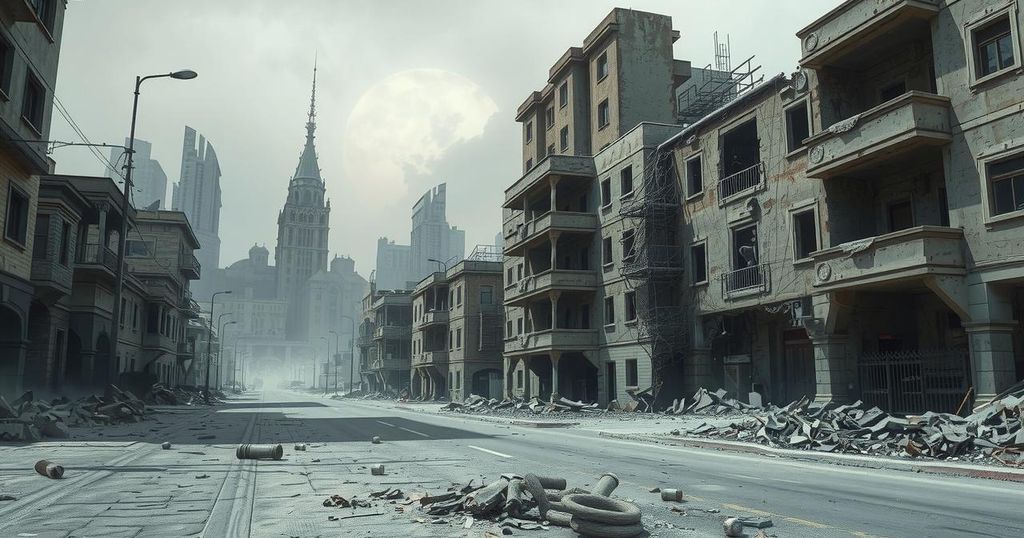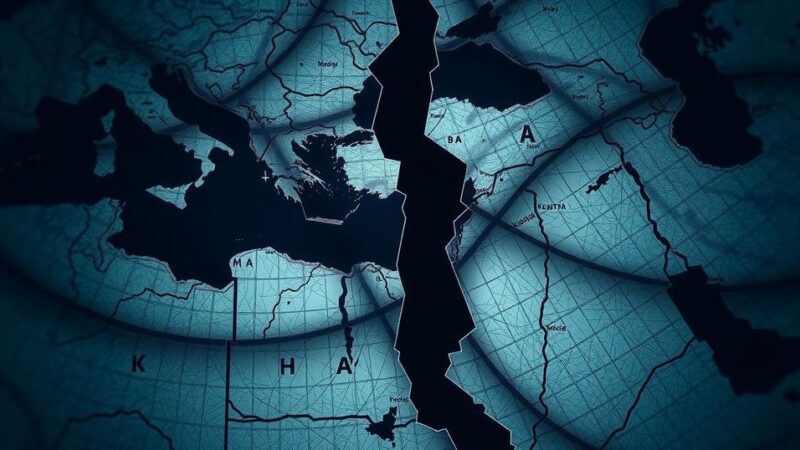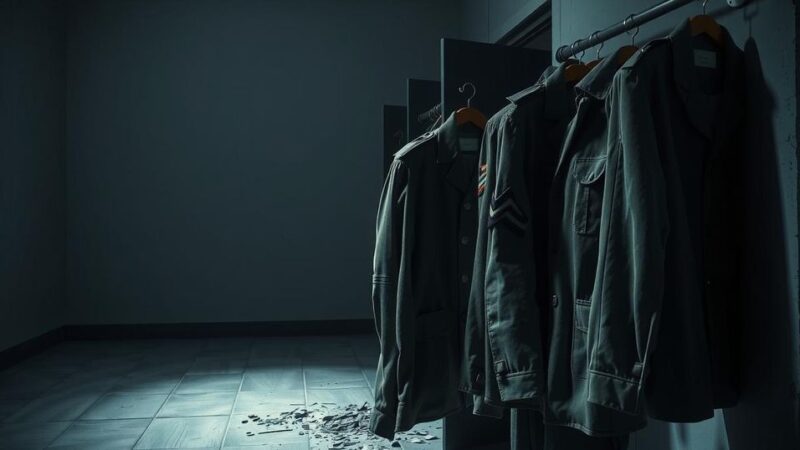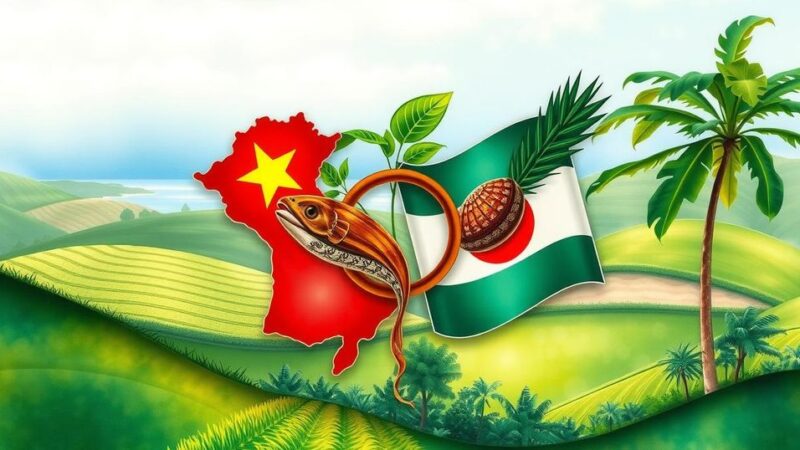Sudan’s military ruler has regained control of Khartoum from the RSF amid ongoing conflict and humanitarian crises. Local responders are crucial yet endangered in their efforts to provide aid, as the situation in the capital remains dire. Analysts express skepticism over potential stability, predicting further violence, particularly in regions like Darfur as the RSF solidifies its power. The international community is urged to take more substantial action to support civilians affected by the conflict.
In recent developments, Sudan’s military ruler made a notable visit to the presidential palace in Khartoum after regaining control from the Rapid Support Forces (RSF). This situation, unfolding since April 2023, has transformed Khartoum into a ghost city, as resident displacement and infrastructure decay continue to escalate. Mathilde Vu, an aid worker, highlighted the tragic plight of Sudanese people suffering from hunger, stating, “It’s heartbreaking to see people dying in huge numbers from hunger in Sudan, once the breadbasket of East Africa.”
Vu emphasized the critical role of local responders in the humanitarian effort as they strive to provide essential services amid dire conditions. They are actively engaged in organizing evacuations, running soup kitchens, and delivering psychosocial support, operating often in challenging circumstances. However, Vu warned that these initiatives are vulnerable, as violence has already claimed the lives of local responders, leading to the shuttering of vital services. “If one local responder dies, one kitchen is closed,” she remarked.
The Sudanese Armed Forces have recently asserted their dominance in key areas within the capital, including the central bank and airport. While these victories are symbolic, analysts express skepticism regarding their potential to foster long-term stability. Abiol Lual Deng cautioned against interpreting the SAF’s military gains as a sign of an imminent resolution, highlighting the extensive destruction within Khartoum. “The fighting disrupted every part of urban life,” she noted.
Despite the retaking of significant locations by the SAF, there is no guarantee that humanitarian aid will flow freely into the capital, given that two-thirds of Sudan’s population requires assistance. Dallia Abdelmoniem, who possesses in-depth knowledge of civil society networks, remarked on the precarious situation of displaced civilians planning to return. Many lack basic amenities yet feel compelled to go back. “For many Sudanese, they don’t have the privilege to wait for full reconstruction,” she stated.
The RSF may have withdrawn from Khartoum but has fortified its position in Darfur, continuing to exert control and influence. Deng highlighted the RSF’s entrenched power dynamics, warning against any assumptions of their dissolution. “They’re not disappearing. They have a base of power in Darfur,” she expressed. Abdelmoniem also cautioned against viewing the SAF’s territorial gains as a pathway to peace, anticipating that renewed violence could prevail in affected regions.
Civilians in Darfur face dire circumstances, as highlighted by Vu’s accounts of families fleeing in secrecy. Access to these critical areas remains severely restricted, with both factions impeding humanitarian aid. Nevertheless, organizations such as the International Committee of the Red Cross and Médecins Sans Frontières persist in their mission to provide assistance.
Despite ongoing humanitarian discussions, the international community’s response has been criticized for its inadequacy, amid the urgency of the crisis. Vu asserted that, amid discourse on potential political solutions, humanitarian access must take precedence: “Aid should have no side.” Meanwhile, uncertainties lurk within the SAF regarding internal cohesion, as leadership struggles may further complicate the conflict.
In this climate, larger questions arise regarding the global implications of the conflict. Deng noted that Sudan’s geographical importance and resources draw influence from regional powers, complicating the endgame of the war. Presently, while Khartoum may be under SAF control, a lasting peace remains elusive, and civilian hardships persist. The urgency for increased international engagement is paramount, as Vu emphasized the dire need for strong involvement to alleviate the plight of civilians caught in the conflict’s crossfire.
The ongoing crisis in Sudan, exacerbated by military confrontations and humanitarian challenges, leaves much uncertainty in its wake. While the SAF has regained control of significant areas in Khartoum, this military dominance does not ensure peace or stability. Humanitarian efforts are essential yet threatened, as local responders face dangers that directly impact food and aid availability. The international community must escalate its engagement to alleviate civilian suffering and work towards a political resolution in this turbulent context.
Original Source: www.arabnews.pk






